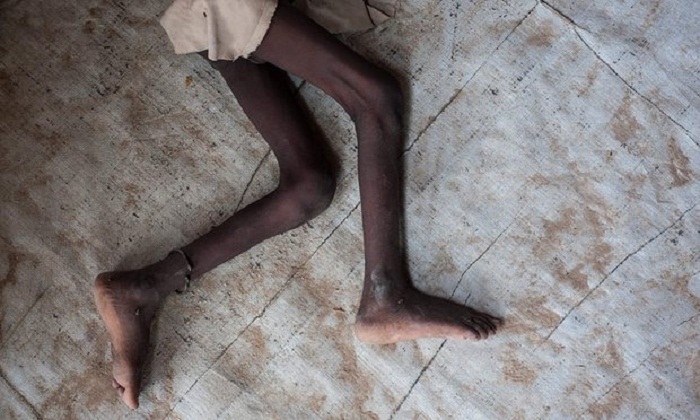In a briefing issued as the Nigerian government issued its appeal for help to the UN on Friday, Save the Children proposed that some of the cash desperately needed by more than 2 million people uprooted by Boko Haram could come from the millions seized in the UK.
“Large sums of illicit finance from Nigeria are laundered through banks and the property markets in the United Kingdom,” it says. “Four years ago, when James Ibori, a former government of Nigeria’s oil-rich Delta state, pleaded guilty to £50m in fraud and money laundering, the presiding judge described the theft as ‘financial criminality on an eye-watering scale’.”
Funds have been seized by the UK authorities in a number of such cases. Following a memorandum of understanding signed in September, the money can be returned to Nigeria for projects to help the poorest in society. “It is difficult to think of any project more deserving of support against this criterion than the humanitarian effort in north-east Nigeria,” said Save the Children.
Nigeria’s relief plan will go to a meeting of UN agencies on Monday which will decide on the priorities for global humanitarian relief for 2017. The government estimates that $1.2bn is needed in north-east Nigeria for next year. Those aid organisations working in the region, where the scale of the crisis is only just becoming apparent as people emerge from areas that have been held by insurgents, fear that the very visible needs in Syria and Yemen will take priority.
But as the Guardian reported last weekend, tens of thousands of malnourished children are at risk of death in areas that were held by Boko Haram, where farmers have been unable to grow crops and aid agencies have been unable to enter.
It may be the worst humanitarian crisis in sub-Saharan Africa, said the aid organisation, which talks of the stark threat facing children. “At least 2 million need assistance, along with 400,000 breastfeeding mothers and pregnant women. Up to 400,000 of these children face life-threatening malnutrition.” Hundreds of children’s graves have already been found in newly accessible areas, it added.
Kevin Watkins, chief executive of Save the Children, urged the world to prevent what happened in Somalia in 2011 from happening again in north-east Nigeria. “The parallel with Somalia is very strong,” he said. “All the pre-famine warnings were there in Somalia for 18 months. The money wasn’t mobilised. After the emergency, every UN agency produced a report saying, ‘We are not doing this again.’ What are they doing now?
“If they fail on this, it is absolutely unforgivable, given the evidence and the mistakes that were made in Somalia. They will be judged incredibly harshly, and rightly so.”
More about:
















































